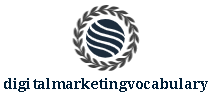Attention Economy: Navigating the Digital Distraction Landscape
In our increasingly digital world, the attention economy has emerged as a critical concept that shapes how we interact with media and technology. Attention, a finite and invaluable resource, has become the currency in an era where content is abundant and available at our fingertips. The essence of the attention economy lies in the fight for our focus, which platforms and businesses seek to capture and monetize.
As consumers navigate through a sea of information, competition for attention intensifies, influencing how content is created and consumed. This paradigm shift poses new challenges and opportunities for marketers, requiring innovative strategies to engage audiences effectively. We explore how these dynamics impact both consumers and creators, revealing the intricate balances at play.
Understanding the mechanisms of the attention economy empowers us to make informed choices about our interactions with digital media. By recognizing the tactics used to capture our attention, we can navigate this landscape more deliberately. Join us as we explore this fascinating economic model, shedding light on its implications for our daily lives and broader societal trends.
Concept and Origin
The attention economy refers to the way human attention is treated as a scarce commodity. This concept emerged from the idea that in a world overflowing with information, grabbing and holding attention becomes a valuable task. It shifts the focus from traditional economic resources like land or labor to attention as a critical resource.
Herbert A. Simon, an American psychologist, was among the first to articulate this concept. In 1971, he noted that information consumes attention, suggesting that the abundance of information leads to a scarcity of attention.
The rise of digital platforms has amplified the importance of attention. Social media networks, search engines, and digital content creators all compete for this limited resource. They use diverse strategies to attract users' focus, transforming attention into a quantifiable and monetizable asset.
In today's digital landscape, our attention is continuously being fragmented. Notifications, pop-ups, and targeted ads all vie for our focus, creating a competitive environment. Businesses and marketers must find innovative ways to capture and keep this fleeting attention amidst numerous distractions.
Understanding these dynamics is essential for digital marketing success. We recognize that our tactics need constant adaptation to fit into this attention-driven economy. Using metrics and analytics, we track engagement, ensuring that our strategies are effectively capturing and utilizing attention.
In summary, the attention economy is a crucial component of the modern economic framework, driving how companies strategize to engage their audience.
Implications and Challenges
In today's attention economy, we are constantly vying for focus in a crowded digital landscape. This brings significant implications for brands and consumers alike. Our strategies must now prioritize capturing short attention spans while remaining engaging and relevant.
Privacy concerns have risen as data collection becomes more invasive. Consumers are becoming aware of how their data fuels the advertising mechanism. As a result, we need to balance targeted advertisements with ethical data practices.
The constant demand for attention can impact mental health for users and creators. We should consider how to create tech experiences that prioritize well-being without compromising on engagement.
Monetization of attention requires adapting to new platforms and technologies. Social media algorithms often dictate what content gets seen. Tracking these changes is crucial for maintaining visibility and relevance in our campaigns.
Competition for attention increases drastically. Companies are investing more in advertising strategies to stand out. This often means larger budgets and creative innovations are necessary to capture the market's eye.
Navigating these challenges requires a keen understanding of digital marketing trends and tools. Staying informed and adaptable ensures that we can successfully engage with our audience without overwhelming them.
These dynamics call for a conscious effort to balance effectiveness with ethical considerations, as we all compete for the same limited resource: attention.

 EN
EN DK
DK SR
SR DE
DE FI
FI